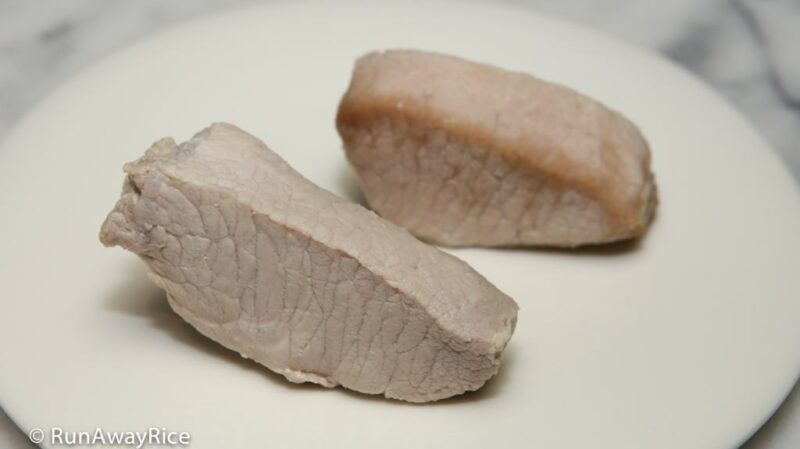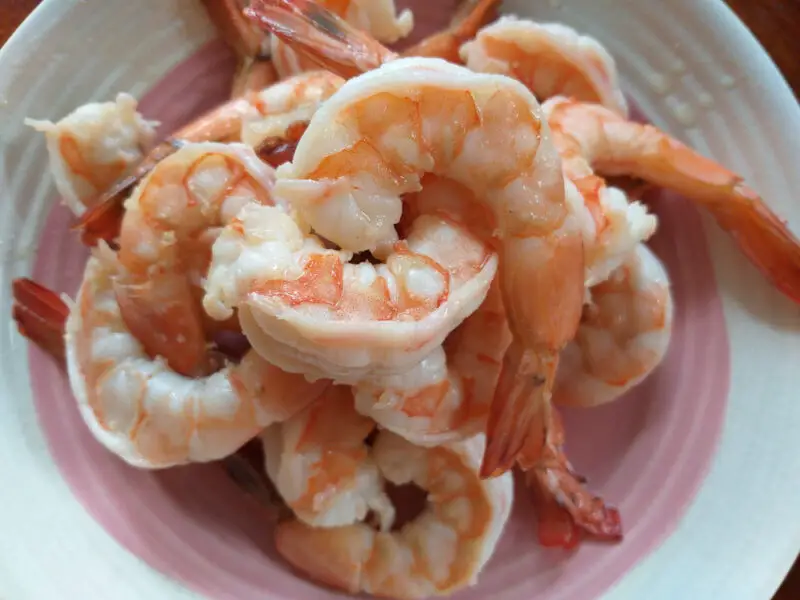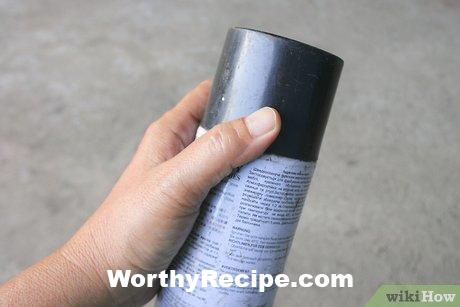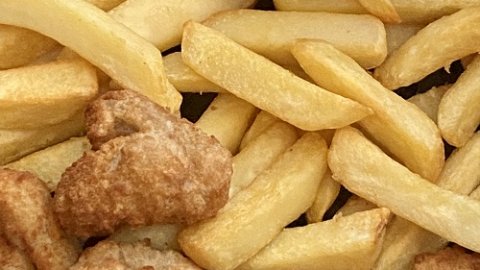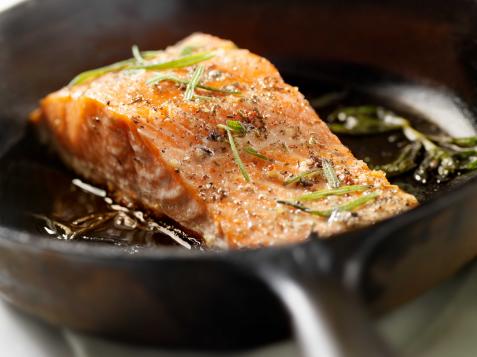Should Pork Be Boiled Before Cooking?
Introduction
Pork is a versatile meat that can be cooked in various ways, including boiling, roasting, grilling, or braising. Boiling pork before cooking is a popular method in some cuisines, but is it necessary? In this article, we will explore the pros and cons of boiling pork and compare it with other cooking methods. By the end of the article, you will have a better understanding of whether or not you should boil pork before cooking it.
Definition of Pork
Pork is the meat that comes from domestic pigs. It is a popular food source worldwide and is used in many dishes ranging from barbecue ribs to bacon-wrapped filet mignon.
Brief Overview of Cooking Pork
Cooking pork involves preparing the meat for consumption by applying heat to it. Depending on how the meat is cut and cooked, it can turn out tender and juicy or tough and dry. There are several different ways to cook pork, including boiling, roasting, grilling, sautéing, and braising.
Purpose of the Article
The purpose of this article is to examine whether boiling pork before cooking is beneficial or detrimental to its nutritional value, taste, and safety. We will explore the arguments both for and against boiling pork and compare its nutritional value and taste with other cooking methods. Finally, we will provide tips for preparing boiled pork and guidelines for handling pork safely.
Benefits of Boiling Pork
Boiling pork has several benefits:
- Reduction of bacteria and pathogens
- Tenderness improvement
Reduction of Bacteria and Pathogens
Boiling pork reduces the risk of foodborne illness caused by bacteria and pathogens. Boiling at 165°F (74°C) kills most types of bacteria and pathogens, including Salmonella, E. coli, and Listeria. These harmful microorganisms can live on raw meat and cause illness if not cooked properly.
Boiling works by denaturing the proteins in bacteria, causing them to break down and die. Simmering for an extended period increases the effectiveness of this process. Boiling also removes any grit or contaminants on the surface of the meat.
Tenderness Improvement
Boiling pork makes it more tender by breaking down collagen, a tough protein found in connective tissue. The long cooking time allows collagen to convert into gelatin, a softer substance that adds flavor and juiciness to meat.
Boiling also ensures that the pork is evenly cooked since the meat is submerged in liquid, preventing hotspots or uneven cooking.
Arguments Against Boiling Pork
However, there are also arguments against boiling pork:
- Nutrient depletion
- Flavor dilution
Nutrient Depletion
Boiling pork can deplete its vitamin and mineral content since water-soluble nutrients can leach out into the cooking liquid. For instance, vitamin B12 and thiamine are water-soluble vitamins that are essential for cellular metabolism but can be lost during boiling.
To combat nutrient loss through boiling, you can use the cooking liquid as a broth or sauce to retain some of its nutrient content. You can also add nutrient-dense ingredients like vegetables or herbs to the broth.
Flavor Dilution
Boiling pork can dilute its natural taste since some of its flavors can be lost in the cooking liquid. However, this can be mitigated by seasoning the cooking liquid with spices or herbs and using it as a broth or sauce. Adding aromatics like garlic, onion, or ginger can also enhance the flavor of boiled pork.
Comparing Boiled Pork and Roasted Pork
To compare boiled pork with other cooking methods, let’s consider roasted pork.
Nutritional Benefits
Roasting pork preserves more of its nutritional value than boiling does. Roasting at high temperatures and for shorter periods preserves more vitamins and minerals compared to boiling, which can deplete them.
Taste Comparison
The taste and aroma of boiled pork are different from those of roasted pork. Boiling pork produces a milder flavor that is suitable for recipes that call for a neutral flavor profile. Roasting pork results in a stronger, richer flavor that is ideal for dishes that require a pronounced savory taste.
Different Methods for Cooking Pork
Other methods for cooking pork include braising, grilling/BBQ’ing, and roasting.
Braising
Braising involves searing the meat in hot oil to brown it before cooking it in a covered container with enough liquid to cover three-quarters of the meat. This allows the meat to braise on low heat and become tender while retaining its juices.
The advantages of braising include:
- Tender meat
- Rich flavors
- Suitable for tougher cuts such as brisket
The disadvantages of braising include:
- Long cooking time
- Requires a large pot or Dutch oven
Grilling/BBQ’ing
Grilling and BBQ’ing pork involve cooking the meat over an open flame or hot coals. This method provides a charred, smoky flavor and develops a crispy exterior while keeping the meat juicy inside.
The pros of grilling/BBQ’ing pork include:
- Quick cooking time
- Smokey, charred flavors
The cons of grilling/BBQ’ing pork include:
- Risk of overcooking and drying out the meat
- Limited control over temperature
Roasting
Roasting involves cooking the pork in an oven at high temperatures until it develops a caramelized crust and tender, moist inside. This method is suitable for larger cuts such as loin or shoulder.
The advantages of roasting include:
- Crispy exterior
- Tender meat inside
- A variety of seasoning options
The disadvantages of roasting include:
- Frequent basting required
- Long cooking time
Tips for Preparing Boiled Pork
To prepare boiled pork, follow these tips:
- Choose the right cut of meat according to your recipe’s requirements.
- Cut the pork into uniform pieces for even cooking.
- Season the cooking water with salt, spices, and aromatics to enhance flavor.
- Bring the water to a simmer, not a boil, and maintain the temperature at 165°F (74°C).
- Simmer the pork for at least an hour until it is fork-tender
Safety Measures When Handling Pork
To handle pork safely:
- Cook it at a minimum internal temperature of 145°F (63°C) for medium-rare, 150°F (66°C) for medium, and 160°F (71°C) for well-done. Use a meat thermometer to ensure proper cooking temperature.
- Wash your hands and all utensils that come into contact with raw pork before and after handling them.
- Store pork in the refrigerator or freezer to prevent bacterial growth.
Conclusion
In conclusion, boiling pork before cooking is beneficial for reducing bacteria and improving tenderness but can also result in nutrient depletion and flavor dilution. Roasting and grilling/BBQ’ing pork have their advantages and disadvantages as well. Ultimately, the best way to prepare pork depends on your recipe, taste preferences, and nutritional goals.
To prepare boiled pork successfully, remember to choose the right cut of meat, season the cooking water with spices and aromatics, and simmer it at a low temperature until fork-tender. Practice safety measures while handling raw pork to avoid cross-contamination and achieve safe cooking temperatures.
By following these tips and guidelines, you can prepare safe, delicious, and nutritious pork that is suited to your culinary needs.
Frequently Asked Questions
1. Is boiling pork necessary before cooking?
Boiling pork before cooking is not necessary, but it can help remove any impurities and excess fat. However, if done for too long, it can cause the meat to become tough.
2. Can I boil pork to make it more tender?
Yes, boiling pork can be a great way to make it more tender. The ideal time for boiling depends on the cut of meat and desired doneness. It’s important to monitor it closely to avoid overcooking.
3. Does boiling pork affect its flavor?
Boiling pork can cause it to lose some flavor, as the water used for boiling can dilute the taste. Adding flavors such as herbs and spices to the water can help enhance the flavor of the meat.
4. What are some alternative methods for cooking pork?
Aside from boiling, there are many other ways to cook pork; grilling, baking, roasting, and sautéing are all popular methods. Each method offers a unique flavor and texture profile, so it’s worth experimenting with different techniques to find what works best for you.
